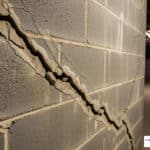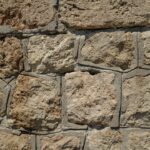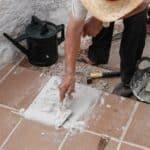Living in Maryland presents unique challenges for homeowners, especially when keeping basements dry and free from structural issues. The state’s mix of clay-heavy soil, fluctuating temperatures, and seasonal rainfall can strain foundation walls, leading to cracks. Let’s explore common causes of basement cracks in Maryland and practical solutions to keep your home safe.
Common Causes of Basement Cracks in Maryland
Basement cracks can appear for several reasons, often related to the conditions and unique environment in Maryland:
- Soil Movement and Hydrostatic Pressure: Maryland’s clay-rich soil expands significantly when wet and contracts when dry. This constant shift exerts pressure on basement walls, leading to cracks that can widen over time. Heavy rainstorms or poor drainage around your home intensify this effect.
- Foundation Settlement: As homes age, they naturally settle. However, when soil shifts excessively, it can create an uneven foundation, leading to cracks. Signs of settling issues include uneven floors and cracks near windows or doors.
- Temperature Fluctuations: Maryland’s varied climate means foundations experience temperature-induced stress. Concrete expands in warm weather and contracts when cold, eventually causing minor cracks that can grow over time.
- Poor Drainage and Landscaping: Improperly graded landscaping or clogged gutters can cause water to pool around your foundation, leading to cracks due to hydrostatic pressure. Maryland’s rainy springs and autumns increase the risk of water accumulation.
Types of Basement Cracks and Their Meanings
Identifying the type of crack can help you understand the severity of the issue and guide you toward the right repair strategy:
- Hairline Cracks: Typically caused by minor settling or concrete curing, hairline cracks are usually not a structural threat but can let in moisture.
- Horizontal Cracks: These cracks indicate significant pressure from soil pushing against the foundation wall. Horizontal cracks are more serious and may require immediate professional attention to prevent wall bowing.
- Stair-Step Cracks: Found near corners and in brick or block foundations, stair-step cracks often result from uneven settlement and need to be addressed before worsening.
Solutions for Basement Crack Repair
When it comes to basement crack repair, Maryland homeowners have several options:
- Epoxy or Polyurethane Injections: For minor cracks, epoxy or polyurethane injections can seal cracks, keeping water and soil gases out. These injections are a cost-effective way to prevent small cracks from worsening.
- Interior Waterproofing Systems: Adding an interior drainage system with a sump pump can reduce hydrostatic pressure by diverting water away from the foundation. This solution is particularly useful for Maryland basements prone to flooding.
- Exterior Waterproofing and Drainage Improvements: Ensuring proper grading, extending downspouts, and adding exterior drainage systems can help protect your foundation. This method addresses the issue from the outside, where water enters.
- Foundation Piering: In cases of severe settlement, foundation piering provides a long-lasting solution. This method directly addresses structural integrity issues by installing piers to stabilize and lift the foundation.
Trust Oriole Basement Waterproofing for Professional Crack Repair Solutions
At Oriole Basement Waterproofing, we understand the unique foundation challenges Maryland homes face. Our team specializes in assessing and repairing basement cracks, using methods tailored to local conditions and soil types. With years of expertise, we offer reliable, effective solutions to keep your home safe and dry.
Don’t let basement cracks compromise your home’s stability. Contact Oriole Basement Waterproofing today to schedule an inspection and ensure your foundation’s long-term durability.





